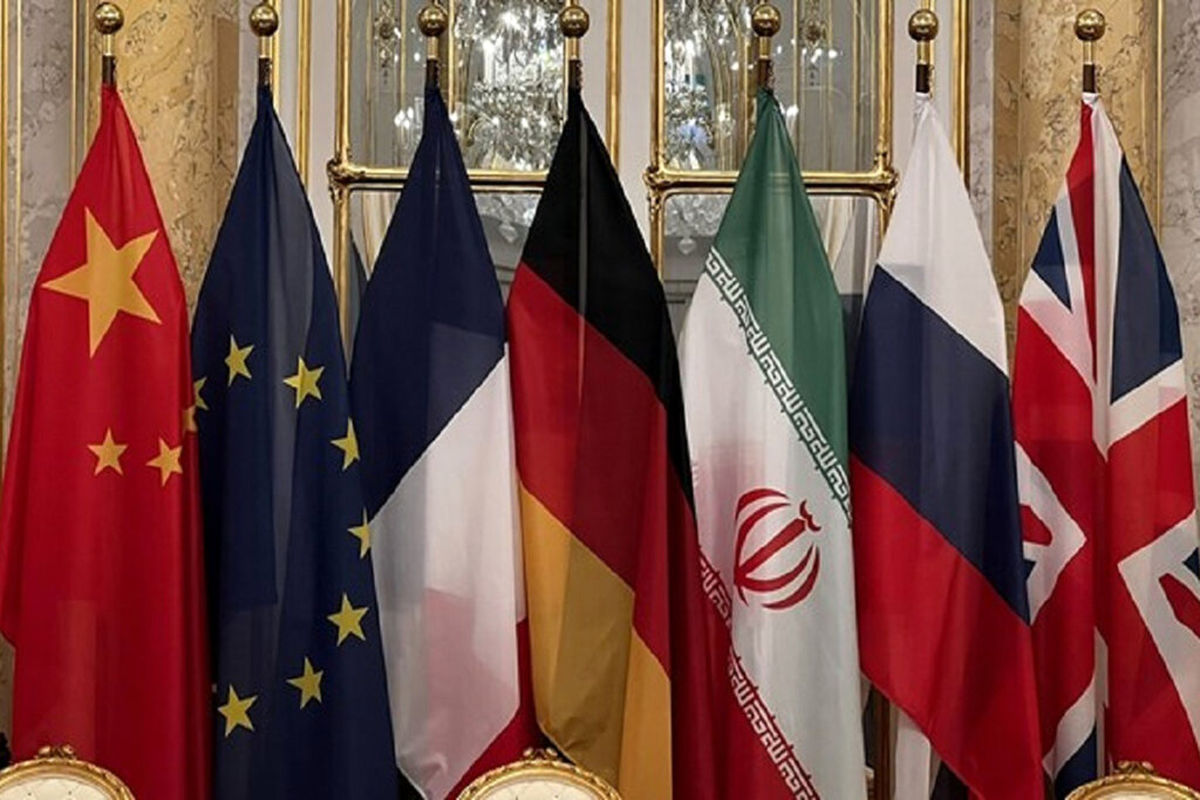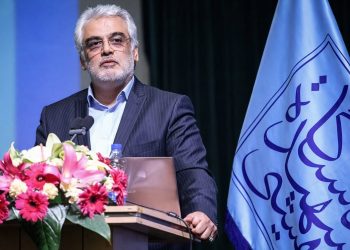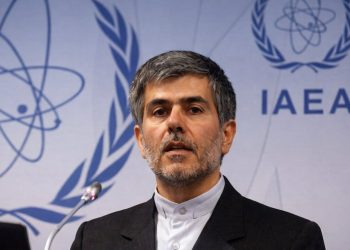The Iran nuclear deal, officially known as the Joint Comprehensive Plan of Action (JCPOA), is a historic agreement reached between Iran and several world powers, including the United States, in July 2015. According to the terms of the agreement, Iran agreed to allow extensive international inspections of its nuclear facilities in exchange for significant sanctions relief worth billions of dollars.
This article examines the significant impacts of the JCPOA on the international order. It analyzes various important effects such as strengthening multilateral diplomacy, promoting international equality, reducing regional tensions, reinforcing the non-proliferation regime, fostering international cooperation, enhancing the role of international organizations, providing a model for conflict resolution, influencing the global economy, and altering the sanctions situation.
Strengthening Multilateral Diplomacy
The Joint Comprehensive Plan of Action (JCPOA) serves as a prime example of successful multilateral negotiations between major world powers and Iran. This agreement was the outcome of painstaking and intricate talks carried out over several years by Iran and the P5+1 group (USA, UK, France, Russia, China, and Germany). The achievement of the JCPOA underscores the fact that, even on highly sensitive and complex matters, through dialogue and compromise, common solutions can be attained. This underscores the significance of diplomacy, in which patience, flexibility, and mutual understanding are key.
The JCPOA negotiations have become a paradigm for the resolution of other international disputes. This experience demonstrates that, despite profound differences, diplomatic channels can lead to common ground. Furthermore, the JCPOA has contributed to the strengthening of international bodies such as the United Nations, which play a crucial role in facilitating multilateral negotiations. This highlights the importance of neutral institutions in mediating international conflicts.
The success of multilateral diplomacy in the JCPOA has bolstered confidence in this approach to addressing global issues. This experience has demonstrated that when countries collaborate, positive outcomes can be achieved for all involved parties. However, the challenges encountered during the implementation of the JCPOA, including the United States’ withdrawal from the agreement, have underscored the need for ongoing commitment and the maintenance of mutual trust in order for multilateral diplomacy to succeed. Since President Donald Trump withdrew the United States from the agreement in 2018, it has been under significant jeopardy (Center for Arms Control and Non-Proliferation, 2020, https://rb.gy/g19hjb). Joe Biden, the current President of the United States, has stated that if Iran returns to compliance with the JCPOA, the United States will rejoin the agreement (Arms Control Association, 2021, https://rb.gy/3q8u2o). It is important to note that Iran has been abiding by its commitments.
The JCPOA has had a significant impact on the relationships between major global powers. This agreement has demonstrated that the United States, Europe, Russia, and China can collaborate to address complex international issues (HAL-SHS, 2021, https://rb.gy/cfhqw5). The negotiations surrounding the JCPOA have provided a platform for dialogue and interaction among these powers that extends beyond the Iranian nuclear issue. This has helped establish new channels of communication and reinforce multilateral diplomacy. The nuclear deal has also brought to light divergent perspectives between the United States and its European allies, particularly following the U.S. withdrawal from the JCPOA. Consequently, Europe has pursued a more independent policy in certain cases.
The involvement of Russia and China in the negotiations and implementation of the JCPOA underscored the significance of these two nations in addressing global challenges, thereby bolstering their standing on the international platform. Furthermore, the JCPOA had an impact on geopolitical rivalries in the Middle East, as shifts in Iran’s relationships with major powers directly influenced the power dynamics in the region.
Promoting International Equality
International inequality, in light of the various interpretations of this concept, is a highly visible issue within the realm of global power dynamics. While the world is progressively moving towards greater equality, major powers continue to hold a significant share of international influence. Tehran, as a crucial player in West Asia, encountered such powers during the JCPOA negotiations. The Islamic Republic of Iran engaged in talks with the five permanent members of the Security Council, along with Germany, on an equal footing, despite being a non-member of the Council. The significance of this matter becomes apparent when we consider that the countries involved in addressing Iran did not possess a superior position, and the negotiations unfolded in a serious and protracted manner over several years. Such an experience demonstrates that other nations, too, can assert their rights and defend the welfare of their citizens from an equitable standpoint.
The JCPOA exemplified that, notwithstanding the disparities in international mechanisms, the pursuit of international equality is attainable even within the existing order. It is worth noting that the outcomes of the JCPOA did not align entirely with Tehran’s aspirations. However, it served as a valuable endeavor to assert the rights of the Iranian people at the international level. Therefore, based on this premise, it can be argued that agreements similar to the JCPOA can be advantageous in promoting international equality, and political actors can pursue comparable agreements for other pertinent issues.
Reducing Regional Tensions
The implementation of the JCPOA led to a significant decrease in tensions in West Asia. This agreement effectively addressed concerns surrounding Iran’s nuclear program, thus promoting regional stability. As a result, constructive dialogues between Iran and its neighboring countries were initiated, creating new opportunities for regional cooperation across various sectors. Additionally, the JCPOA opened doors for enhanced economic and trade partnerships between Iran and other countries in the region, fostering stronger relationships and further alleviating tensions.
The nuclear agreement played a crucial role in reducing the likelihood of military conflicts in the region. Concerns regarding potential military strikes on Iran’s nuclear facilities were greatly diminished. By diminishing tensions, the JCPOA allowed for a redirected focus on other regional challenges, potentially aiding in the resolution of conflicts in West Asia. The agreement also mitigated the possibilities of conflicts between Iran and its regional rivals, including Saudi Arabia. Nevertheless, it is important to acknowledge that the impact of the JCPOA on reducing regional tensions encountered challenges. The ongoing geopolitical competitions and certain countries’ apprehensions about Iran’s growing influence remained as contentious factors in the region.
Strengthening the Nuclear Non-Proliferation Regime
Iran’s nuclear program has emerged as one of the most complex challenges on the international stage in recent years. Western nations, perceiving this program as a security threat, have framed it as a menace to global peace. Consequently, multiple UN Security Council resolutions have been issued, and extensive sanctions have been imposed on Iran. The Joint Comprehensive Plan of Action (JCPOA) has been presented as an exemplar for regulating countries’ nuclear programs. This accord has demonstrated that diplomatic means and international oversight can effectively address concerns regarding the spread of nuclear weapons.
Iran’s nuclear deal has contributed to bolstering the Non-Proliferation Treaty (NPT) (Council on Foreign Relations, 2023, https://rb.gy/sjsm3f). The JCPOA has showcased the international community’s ability to respond to potential breaches of this treaty and offer diplomatic resolutions. This agreement has underscored the pivotal role of the International Atomic Energy Agency in monitoring and verifying nuclear programs. By fortifying the agency’s role, international confidence in controlling nuclear activities has been enhanced.
The JCPOA has furnished a blueprint for transparency in nuclear programs. It has demonstrated that precise monitoring mechanisms can engender international trust. Additionally, Iran’s nuclear deal has fostered increased cooperation on the peaceful use of nuclear energy at the global level. This cooperation can facilitate the expansion of nuclear technology for peaceful purposes. Nevertheless, it must be acknowledged that upholding and reinforcing the non-proliferation regime necessitates ongoing commitment and collaboration from all nations.
Increasing International Cooperation
The Joint Comprehensive Plan of Action (JCPOA) has facilitated broader cooperation between Iran and the global community across various sectors. This agreement has enabled the resumption of diplomatic, economic, and cultural relations between Iran and numerous countries. Notably, there has been a significant increase in international cooperation in the scientific and technological fields. The JCPOA has provided an opportunity for Iran to engage in peaceful nuclear cooperation with other nations and has expanded avenues for knowledge and technology exchange. Additionally, this agreement has fostered economic and trade cooperation between Iran and the rest of the world. The lifting of sanctions has opened up opportunities for foreign investment in Iran and the presence of international companies in the Iranian market. For instance, within a year of the JCPOA agreement, foreign direct investment increased by 64% to $3.372 billion. In 2017, foreign direct investment in Iran grew by 49% to $5.019 billion compared to 2016 (The Washington Institute, 2022, https://shorturl.at/amIK7).
The JCPOA has also paved the way for broader cultural and educational cooperation. This has led to an increase in academic exchanges, tourism, and cultural exchanges between Iran and other countries. Furthermore, the nuclear deal has strengthened Iran’s collaboration with international organizations, enabling greater participation in addressing global challenges such as climate change and counterterrorism. Notably, the removal of Iran’s nuclear program from Chapter VII of the Security Council, which previously recognized it as a serious threat to international peace and security, marks a significant step towards enhancing international cooperation (Arms Control Association, 2020, https://shorturl.at/xRS6A). However, the existence of certain political challenges has hindered the realization of the full potential of these cooperative efforts. This highlights the importance of political stability and ongoing commitment from all parties involved in order to achieve successful international cooperation.
Enhancing the Role of International Organizations
The JCPOA underscored the pivotal role of international organizations, notably the International Atomic Energy Agency (IAEA), in resolving global conflicts. This agreement highlighted the significance of international oversight and verification. The International Atomic Energy Agency assumed the responsibility of monitoring the implementation of Iran’s nuclear commitments (Auswärtiges Amt, 2024, https://rb.gy/6o3d6w). This bolstered the credibility and importance of this organization on the global stage. Additionally, the United Nations played a crucial role in facilitating negotiations and adopting resolutions pertaining to the JCPOA. This underscored the UN’s value in resolving international disputes.
The JCPOA also fostered greater collaboration between various international organizations. For instance, cooperation between the International Atomic Energy Agency and the UN Security Council intensified during the implementation of the agreement. The role of international organizations within the JCPOA served as a blueprint for addressing other global conflicts. This experience demonstrated that international organizations can assume an influential role in mediating, monitoring, and implementing international agreements.
A Model for Conflict Resolution
The JCPOA was presented as an exemplary model for resolving international disputes through negotiation and agreement. This agreement exemplified that even the most intricate disputes can be resolved through diplomatic means (Air University, 2023, https://shorturl.at/Z67Cg). The successful outcome of the JCPOA negotiations underscored the significance of patience, flexibility, and mutual understanding in conflict resolution. This valuable experience can be applied to negotiations pertaining to other contentious global issues.
Moreover, the JCPOA highlighted the importance of adopting a systematic approach to resolving disputes. By breaking down complex issues into manageable stages, gradual progress can be made, as demonstrated by this agreement. The role of mediation and facilitation in the JCPOA negotiations underscored the necessity of impartial parties in dispute resolution. This experience can be leveraged in other international conflicts. Additionally, the JCPOA demonstrated the utilization of diverse tools to achieve a consensus. This approach can be taken into consideration in resolving other disputes.
Impact on the Global Economy
The Joint Comprehensive Plan of Action (JCPOA) had a profound impact on the global economy, particularly in the energy sector. The removal of oil sanctions against Iran resulted in an increase in global oil supply and had implications for global oil prices. The agreement also facilitated foreign investments in Iran, attracting international companies from diverse industries such as automotive, aviation, and energy. This influx of foreign companies contributed to economic growth and enhanced trade exchanges.
Furthermore, the JCPOA led to the release of Iran’s frozen assets abroad, providing a boost to the country’s financial resources and opening up possibilities for expanding international trade (The Iran Primer, 2021, https://shorturl.at/vqRlf). The impact of the JCPOA extended beyond Iran, creating fresh opportunities for trade and economic cooperation in the West Asian region.
The financial and banking sector also experienced the effects of the JCPOA. Iran’s reintegration into the global financial system and the ability to conduct international transactions had a positive impact on global trade. However, the U.S. withdrawal from the JCPOA and the subsequent reimposition of sanctions posed significant challenges to many of these positive economic outcomes. This serves as a reminder that the benefits of such agreements rely on ongoing commitment from all involved parties.
Following the JCPOA, Iran’s diplomatic engagements with the international community entered a new phase. Numerous delegations from various countries visited Iran to rejuvenate economic relations. Notably, moderate European countries such as Italy, Greece, Switzerland, Austria, and Croatia made substantial efforts to expand their ties with Iran. However, major European countries like France, Britain, and Germany, despite their participation in the nuclear negotiations, did not take effective measures to lift sanctions due to U.S. pressure and considerations related to the Zionist regime (Royal United Services Institute, 2020, https://shorturl.at/VAFtH). Consequently, Iran gravitated towards developing relations with moderate European countries.
Changing the Sanctions Situation
The nuclear deal, known as the JCPOA, marked a pivotal moment in Iran’s relations with the global community. This agreement opened the doors to enhancing Iran’s political, economic, and cultural ties with the European Union and other Western countries. It had significant impacts on the sanctions situation, including:
1. Direct reduction of certain sanctions.
2. Weakening of the international support for sanctions against Iran.
3. Creation of a division among countries imposing sanctions.
4. Exposing disagreements regarding the ultimate goals of sanctions (Consilium, 2023, https://shorturl.at/xiy5l).
Given their energy resource needs, moderate European countries present a potential market for Iran’s oil and gas exports. For instance, the visit of the Croatian President to Iran, accompanied by a large economic delegation, resulted in the signing of cooperation agreements across various sectors (IRNA English, 2016, https://shorturl.at/Ibh2R). Iran holds strategic importance for Europe due to its natural resources, human capital, and geographical position. It can serve as a gateway for Europe to West Asia and North Africa. Ultimately, by pursuing a foreign policy based on de-escalation and constructive engagement, especially regarding the nuclear issue, Iran has created an opportune environment for expanding its relations with European countries. The process of nuclear negotiations, starting from the interim agreement in Geneva to the implementation of the JCPOA and the lifting of nuclear sanctions, has paved the way for this improvement in relations.
Prior to the JCPOA, Iran faced systematic pressures from global powers, primarily through sanctions. These sanctions were first imposed in the mid-1980s, with the alleged aim of curbing Iran’s support for terrorism, and later focused on limiting Iran’s nuclear program from the mid-1990s onwards. Security Council sanctions were approved starting in 2006 and intensified the pressure on Iran. The sanctions had detrimental effects on Iran’s economy, including reduced oil production, increased inflation, and high unemployment rates. The signing of the JCPOA in 2015 ushered in a new era for Iran on both regional and global fronts. The positive outcomes of the JCPOA for Iran encompassed an increased role in regional dynamics, heightened geopolitical significance, international validation of Iran’s nuclear program, and an improved economic situation with greater foreign investment (NATO PA, 2024, https://shorturl.at/eGQPD). The JCPOA initiated the process of de-securitizing Iran and established its standing as a desirable actor within the international community. Hence, the JCPOA represents a turning point in Iran’s foreign policy.
1. Center for Arms Control and Non-Proliferation (2020), A worthless withdrawal: Two years since President Trump abandoned the JCPOA, Accessible at: https://rb.gy/g19hjb
2. Arms Control Association (2021), Returning to Progress on Iran, Accessible at: https://rb.gy/3q8u2o
3. Council on Foreign Relations (2023), What Is the Iran Nuclear Deal?, Accessible at: https://rb.gy/sjsm3f
4. HAL-SHS (2021), Joint Comprehensive Plan of Action (JCPOA), Accessible at: https://rb.gy/cfhqw5
5. Auswärtiges Amt (2024), The Iranian nuclear program, Accessible at: https://rb.gy/6o3d6w
6. Air University (2023), The Rise and Fall of the Joint Comprehensive Plan of Action, Accessible at: https://shorturl.at/Z67Cg
7. The Iran Primer (2021), Iran’s Frozen Assets, Accessible at: https://shorturl.at/vqRlf
8. Consilium (2023), Joint Comprehensive Plan of Action and restrictive measures, Accessible at: https://shorturl.at/xiy5l
9. Royal United Services Institute (2020), Iran and the West after the Nuclear Deal, Accessible at: https://shorturl.at/VAFtH
10. NATO PA (2024), shifting geopolitics in Iran and the gulf, Accessible at: https://shorturl.at/eGQPD
11. IRNA English (2016), Iran, Croatia ink 2 cooperation documents, Accessible at: https://shorturl.at/Ibh2R
12. The Washington Institute (2022), How Much Would Iran Gain Financially from Returning to the JCPOA?, Accessible at: https://shorturl.at/amIK7
13. Arms Control Association (2020), UN Security Council Resolutions on Iran, Accessible at: https://shorturl.at/xRS6A





